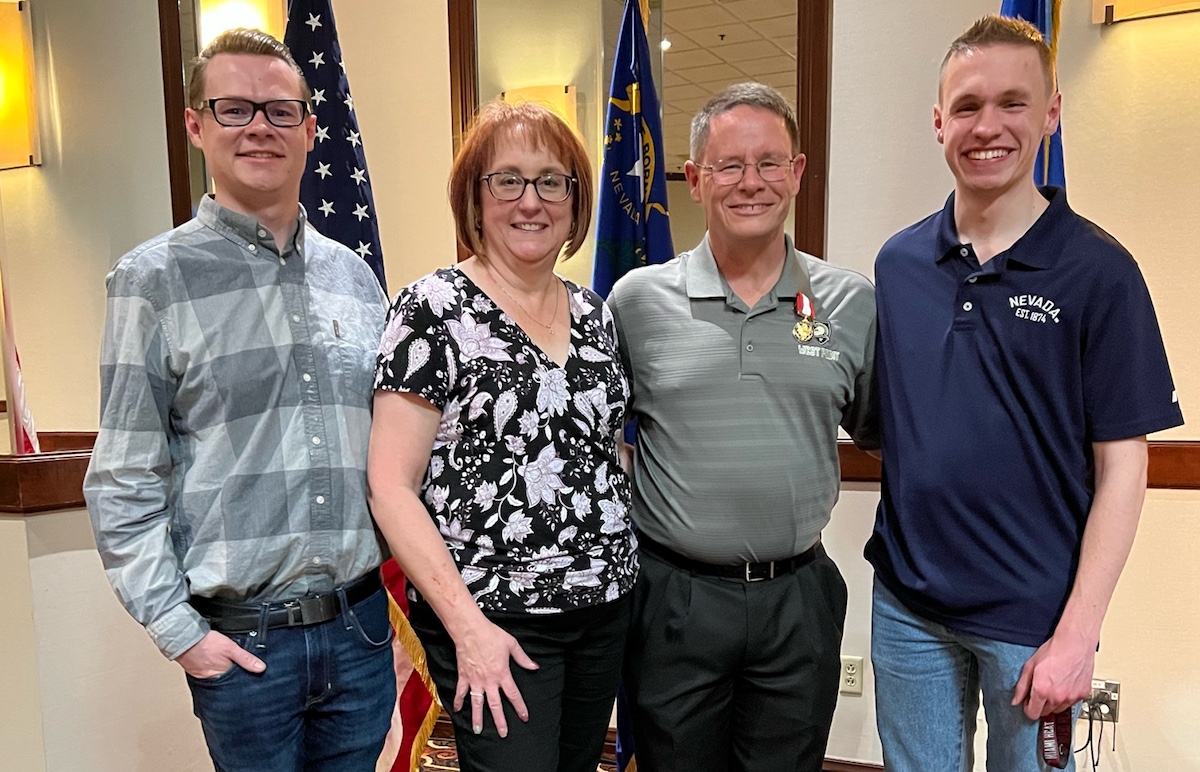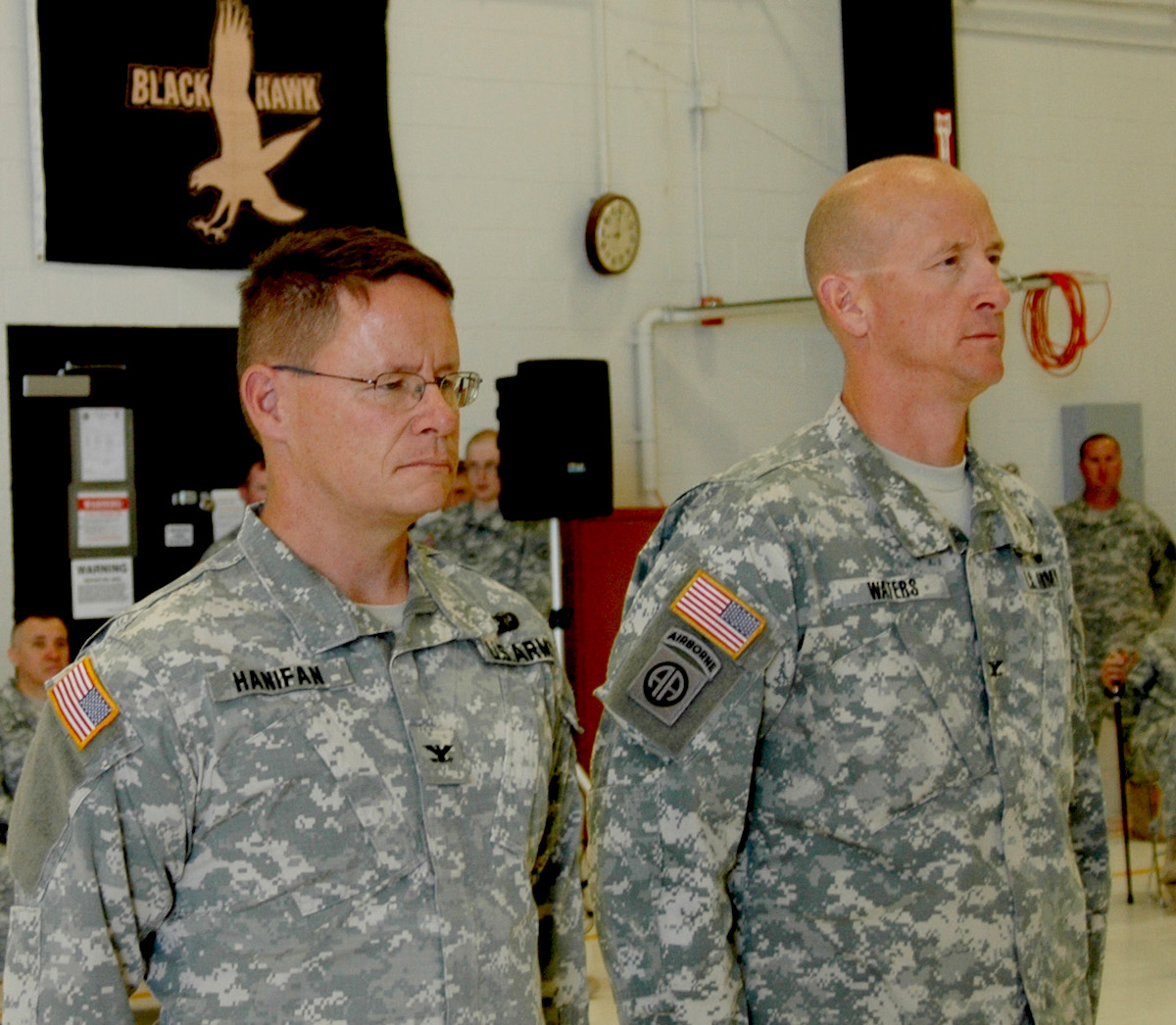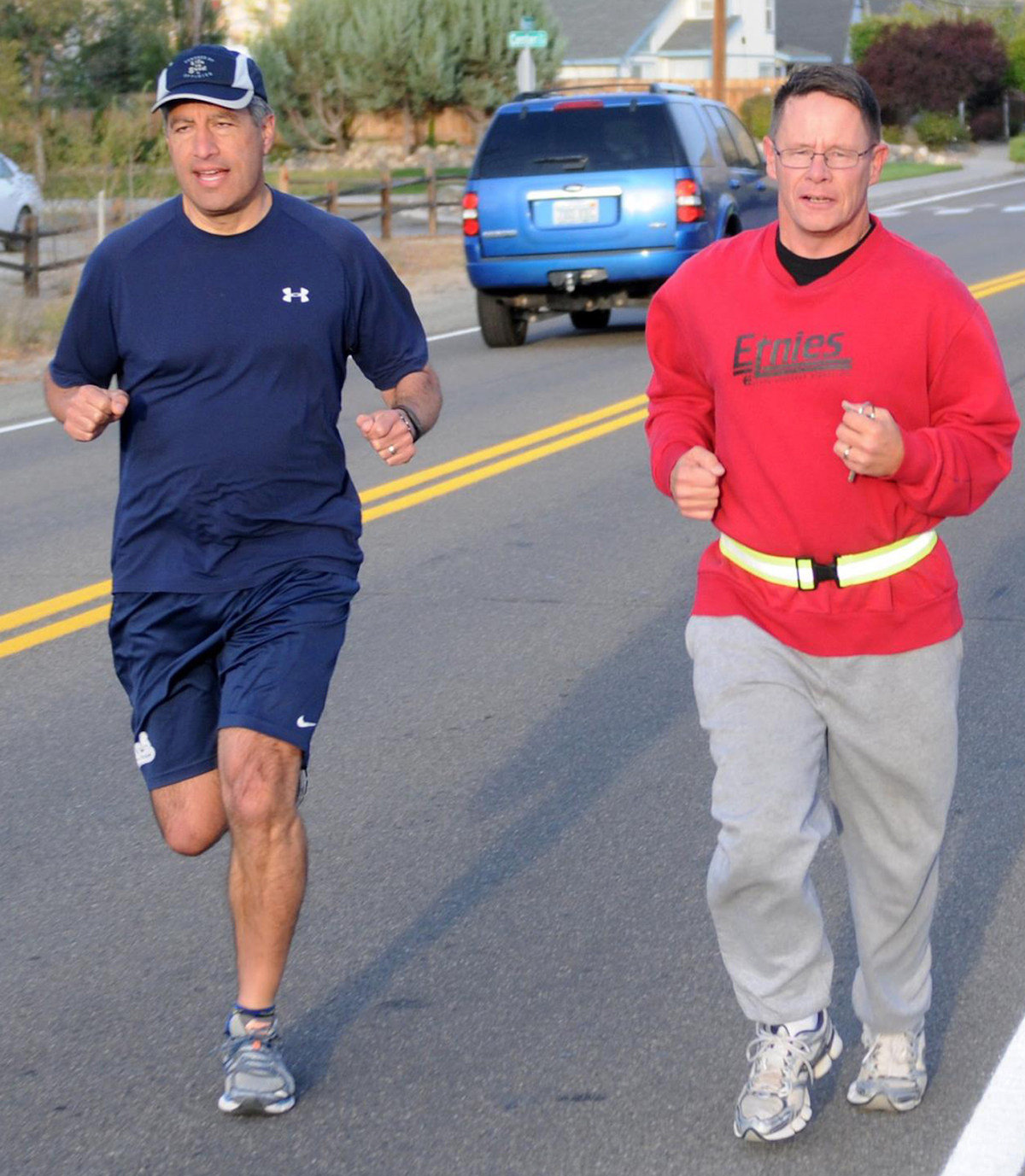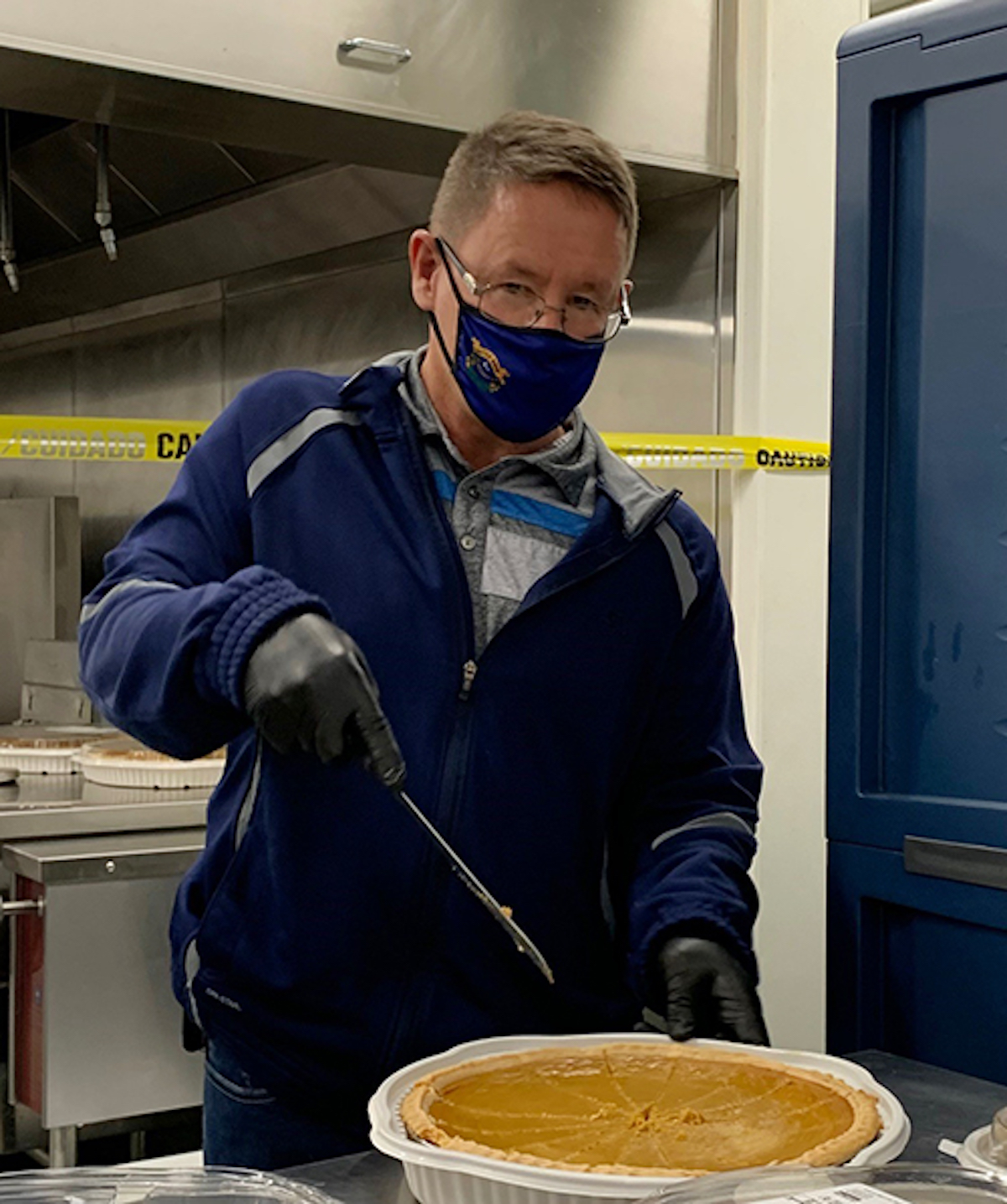Brig. Gen. Troy Armstrong, left, land component commander, offers words of praise and congratulates Brig. Gen Michael Hanifan at his retirement dinner.
 Zandra Duran/Nevada Guard
Zandra Duran/Nevada Guard
“This was the first time the state did something like that,” Hanifan recalled.
During the airport security mission, he noted the Transportation Security Administration didn’t exist and the screeners were airline employees. In the wake of 9/11, Hanifan said the government and airlines beefed up security and, during the Nevada Guard’s airport activation, the Guardsmen were responsible for responding to security threats.
In 2006, Hanifan worked with the units sent to Arizona and California on two- and three-week rotations to assist U.S. Customs and Border Protection.
He said the most devastating incident during his Nevada Guard career occurred on a late summer morning in the capital city.
Hanifan recounted the lone gunmen who randomly opened fire at customers at the IHOP Restaurant on Sept. 6, 2011, and killed three Nevada Guard soldiers and a civilian before he took his own life. Hanifan said he knew each soldier personally and his immediate concern was to care and comfort the families after their loss while navigating the Nevada Guard through the aftermath of the tragedy.
 Nevada Guard
Nevada Guard
“We lost some very good soldiers,” he said.
For the next decade, Hanifan and other soldiers annually organized a memorial run each September to honor Lt. Col. Heath Kelly, Master Sgt. Christian Riege, Sgt. 1st Class Miranda McElhiney and South Tahoe resident Florence Donovan-Gunderson. Hanifan would attempt to preface the run with a short speech, but each time he would choke up while remembering the victims.
Hanifan said soldier suicides have become an area of increasing concern in recent years. He said the National Guard has implemented major programs in recent years to curb increasing suicide rates and help soldiers who have seemingly given up on life.
“Any suicide is too many,” Hanifan said.
Hanifan never did deploy to Iraq or Afghanistan during the height of the Global War on Terrorism; instead, he remained in Nevada as the state’s training officer and then as deputy commander of the Nevada Guard. If times had been different, Hanifan said he would have taken the opportunity to deploy overseas.
“It wasn’t in the cards for me,” Hanifan said.
 Nevada Guard
Nevada Guard
From 2013-2017, he was the commander of the 3,300-soldier Nevada Army Guard.
It wasn’t all domestic duty for Hanifan. When he was a young lieutenant with the 9th Infantry Division at Joint Base Lewis-McChord, he participated in several lengthy Team Spirit exercises in South Korea.
During his career, he said Denise often worked with military family members. She was quick to support them during deployments or, unfortunately, when casualties occurred.
“These were hard times to take care of units and soldiers,” Hanifan added.
During his remarks, Hanifan recognized the officers who served as his mentors when he made the transition from the active Army to the Nevada Guard.
Hanifan said retired Col. Dennis George, the chief of staff at the time, warmly welcomed him into the Nevada Guard. Three retired colonels — Joseph Rooney, David Sarnowski and Craig Wroblewski — provided important guidance on training and domestic operations. Other retired colonels including Michael Carlson, Aaron Kenneston and Felix Castagnola were also key figures who helped Hanifan transition into the National Guard.
Although Hanifan credited many soldiers for shaping his life, he said his father, John, was his personal role model in leadership in both the Nevada Guard and at his civilian employment with Kennametal in Fallon.
“I learned a lot from listening to him,” Hanifan said.
 Nevada Guard
Nevada Guard
John Hanifan, who died in 2012, was part of The Greatest Generation. Michael Hanifan said his father was prepared to deploy during the Korean War, but the war ended when John was finishing his studies at the officer basic course.
“He was expected to go,” Michael Hanifan said. “He grew up with duty.”
Michael is not the lone Nevada Guard officer in the family. His sister, Kieran, was an officer in the 422nd Signal Battalion.
Even with his military career in the past, Hanifan remains committed to the military and he vows to practice what he preached for the past 36 years. Many changes have occurred in society since he took his military oath in 1982, but not his personal values.
Hanifan said the core value he emphasizes is selfless service, which places the country’s and the Army’s priorities above an individual’s. West Point’s motto “Duty, Honor, County” remains Hanifan’s lifelong mantra.
“My service was never about me,” Hanifan said.